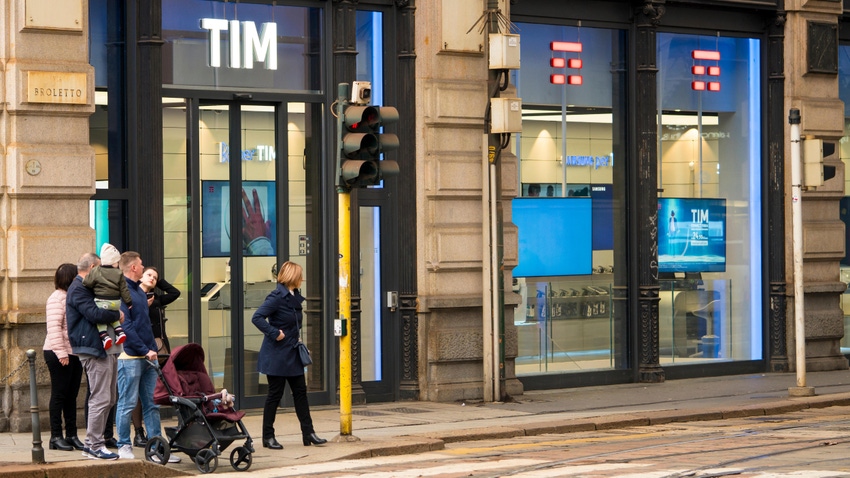Italy's TIM suffers share price carnage after release of 'industrial plan'
Markets worried about TIM's higher than expected debt levels following sale of NetCo business.

Another bruising week for Telecom Italia (TIM) shareholders. Markets gave a frosty reception to the release this week of TIM's latest two-year "industrial plan" (2024-26), which saw the operator's share price squeezed by an eye-popping 14% in the space of a few hours' trading (although it did subsequently pick up slightly during the course of the company's Capital Market Day presentations).
Investors, it seems, took fright at analyst uneasiness over the debt-level outlook. Projecting Group financials minus its NetCo fixed-line infrastructure arm – expected to be sold to US private equity firm KKR – TIM mapped out a target leverage ratio (adjusted net debt as a proportion of organic EBITDAaL) of what seems, on the face of it, a far from catastrophic range of between 1.6 times and 1.7 times by 2026. TIM even asserted that the planned €22 billion (US$24 billion) NetCo disposal meant a "solid capital structure thanks to unprecedented deleverage." Group leverage, at the end of 2023, was 3 times. So, all good right?
Not according to Andrea de Vita, an Intesa Sanpaolo equity analyst. Writing in a research note quoted by Reuters, he said "the leverage target of 1.6-1.7 times [the company's core earnings] implies some €900 million [$984 million] debt increase from the proforma level at end-2023 of €6.15 billion [$6.7 billion]."
Aside from pointing out that forecast debt levels of the slimmed-down new-look TIM were above market expectations, other analysts (cited by Reuters) ruefully noted that no dividend distribution plans were included in the statement issued this week.
TIM titled the new industrial plan as "Free to Run," but markets, initially at least, don't appear to see it as a sort of Forrest Gump moment when leg braces (heavy debt) fall off and enable a sprint towards a more profitable ServiceCo world.
A ServiceCo focus has always been the strategy of CEO Pietro Labriola since he took the TIM helm two years ago. A shareholder meeting next month will decide if he keeps his job.
It's all good, says TIM
Negative market reaction notwithstanding, TIM insisted that the sale of the fixed network will allow it to operate with fewer financial and regulatory constraints and pave the way for a greater focus on what it calls "industrial components."
"Despite a highly uncertain macroeconomic environment, all economic and financial metrics are expected to improve significantly, while maintaining a solid capital structure," said TIM in a statement.
The latest industrial plan has fairly modest expectations for TIM Consumer (stabilize core business; a gradual increase in fixed and mobile ARPU; and development of a 'customer platform' model with a focus on 'beyond connectivity'), but TIM Enterprise "will continue its service revenue acceleration." Growth drivers here are expected to be cloud, IoT and cybersecurity.
Full operational start-up of cloud company Polo Strategico Nazionale, which addresses Italy's public administration market, of which TIM is the main shareholder and "technology enabler," is also expected to give TIM Enterprise a boost.
As for TIM Brasil, further growth in revenues and EBITDA is expected, with "double-digit cash-generation growth."
Read more about:
EuropeAbout the Author(s)
You May Also Like












